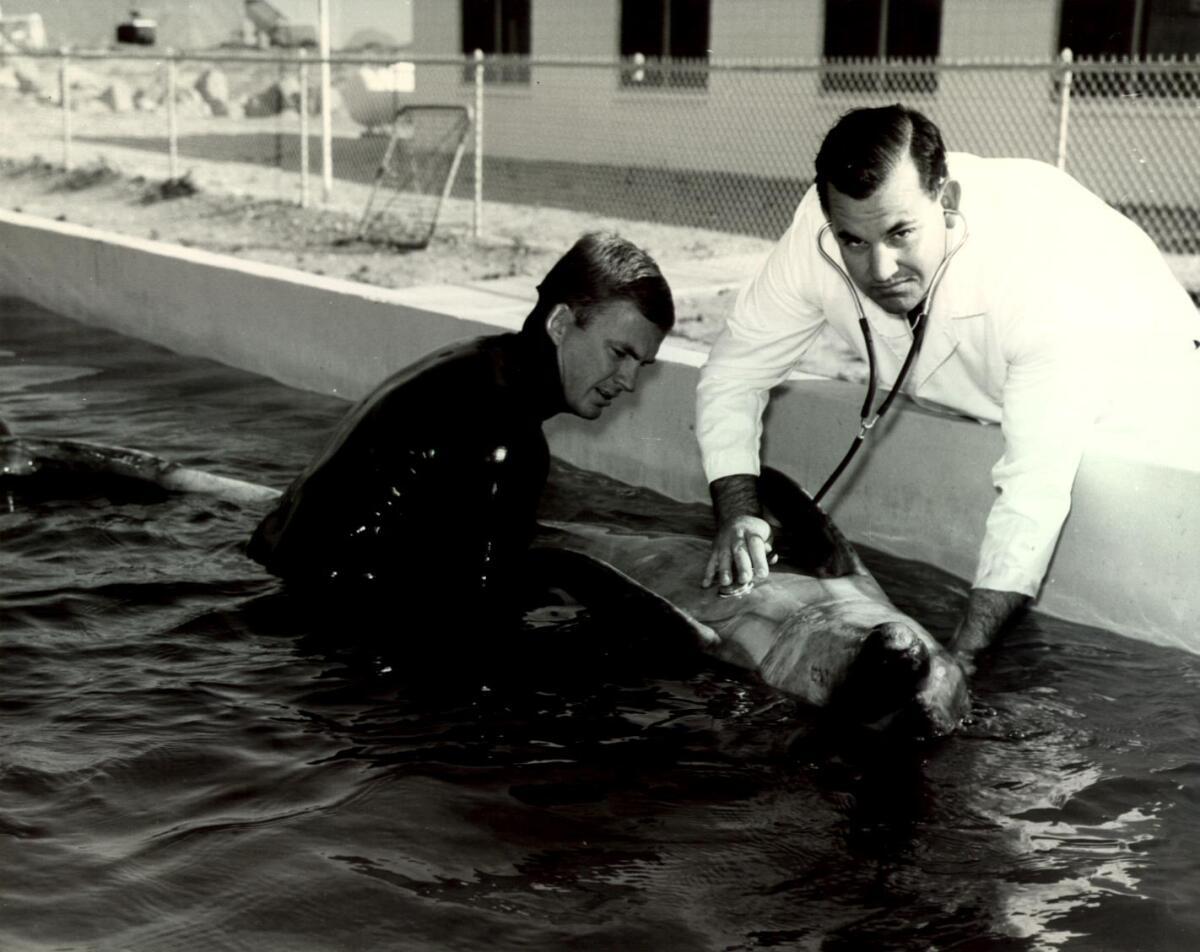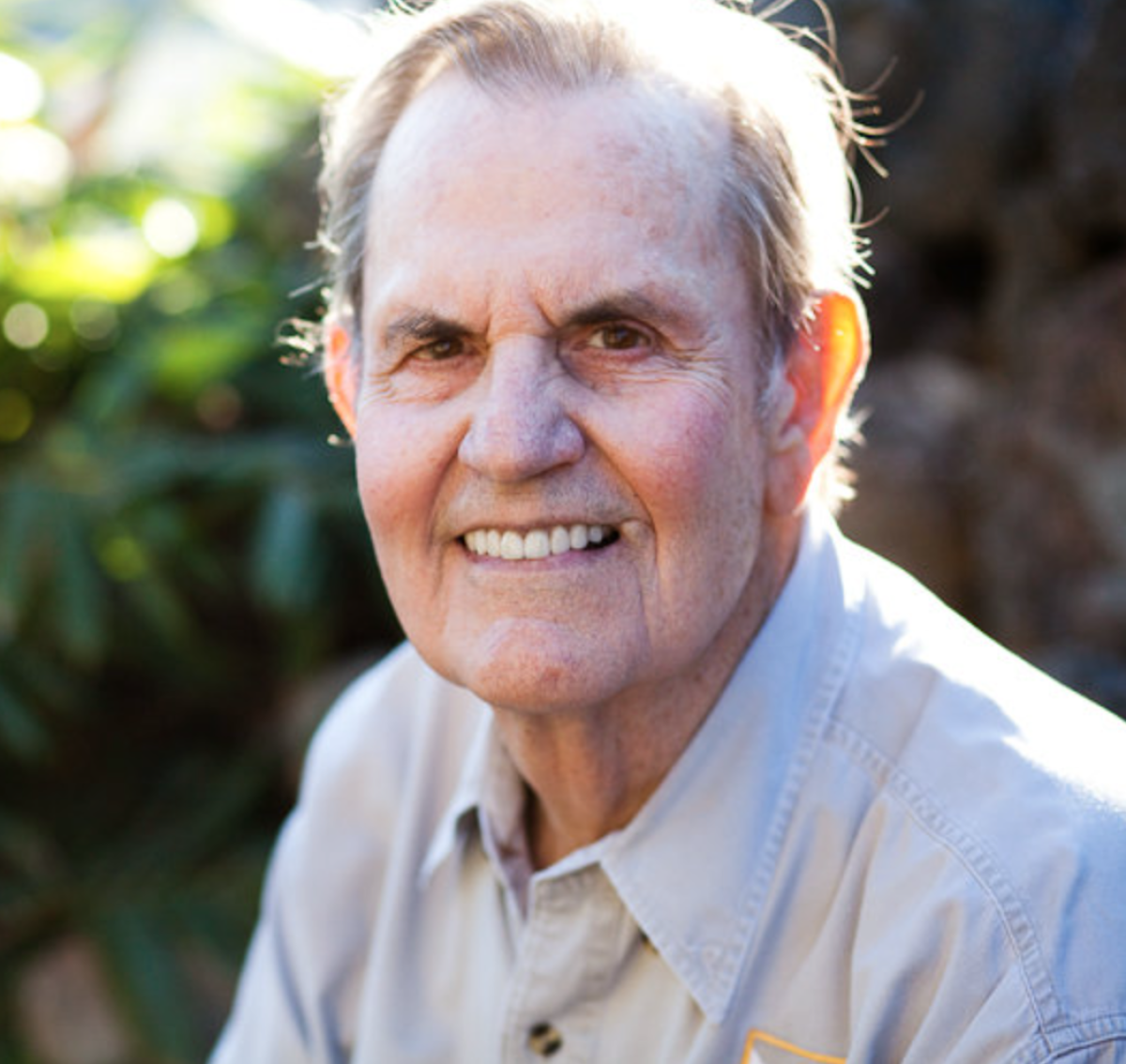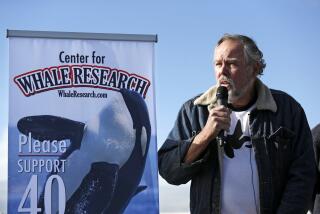Sam Ridgway, âDolphin Doctorâ who showed us how intelligent the mammals are, dies

Over a more than 60-year career, Dr. Sam Ridgway created a legacy as a pioneer in marine mammal medicine and science and a foundation for their conservation, particularly with his discoveries about bottlenose dolphins.
Known affectionately by colleagues as the âDolphin Doctorâ and as the father of modern marine mammal medicine, Ridgway continued that work up until his final days. Ridgway died July 10 at his home in San Diego at 86. His death had not been publicly announced.
âSam was a kind and gentle man with a genuine curiosity about everything and everyone around him. This boundless curiosity made him an exceptional scientist and also a wonderful friend,â said Dr. Cynthia Smith, the president and CEO of the National Marine Mammal Foundation.
Throughout his career, Ridgway worked to understand the behavior, physiology and acoustics of marine mammals.
He developed dolphin anesthesia and other marine mammal medicines, as well as techniques to study the animalsâ hearing where no data existed previously. He pioneered methods for studying them while they swam freely in the open ocean, not in contained facilities.
And it was Ridgwayâs studies of the complexity of the dolphin brain that helped the world recognize them as intelligent animals, said Dr. Frances Gulland, chair of the Marine Mammal Commission.
Ridgwayâs interest in veterinary medicine blossomed at an early age as he grew up surrounded by animals on his familyâs farm in Bigfoot, Texas.
After graduating from Texas A&M University, Ridgway joined the Air Force and became a veterinary officer for military service animals. He would later earn his doctorate in neuroscience from Cambridge University.
After moving to California, he became the attending veterinarian for the Navyâs marine mammals. In the early 1960s, he helped found the Navyâs Marine Mammal Program â a classified program to study the complexity and intelligence of dolphins, their sonar skills and their ability to descend to dizzying depths.
âWe started back in the early â60s and found we could take dolphins into the open ocean, and they would stick with us and very happily work with us,â Ridgway told the San Diego Union-Tribune in 2001. âWe established the concept of human/dolphin teams.â
By the time the Navyâs program was declassified in 1992, it was a multimillion-dollar project not only studying dolphins, sea lions and whales but also training the mammals to aid Navy divers by detecting mines, experimental weaponry and enemy swimmers, as well as recovering hardware and weaponry fired into the ocean.
During that time, Ridgway had formed a bond with an Atlantic bottlenose dolphin named Tuffy, the Navyâs first domesticated dolphin, which would later become the subject of his book âThe Dolphin Doctor.â
Over the years, Ridgwayâs studies were published in more than 350 peer-reviewed papers in various scientific journals and books. His book âMammals of the Sea,â published 50 years ago, remains one of the most comprehensive and widely taught textbooks on marine mammal physiology.

As a leader in his field, Ridgway founded various organizations and served on the boards of numerous scientific committees.
In 2007, he helped establish the National Marine Mammal Foundation, a San Diego-based nonprofit recognized as a leader in mammal science, medicine and conservation.
The nonprofitâs team of marine mammal biologists, veterinarians, conservation experts and scientists work directly to impart the science to some of San Diegoâs youth, something Ridgway valued doing with his own students and colleagues.
Over the years, Ridgway mentored hundreds of veterinarians, conservationists and scientists â including, most recently, Brittany Jones.
âWhen he looked at you, he thought, âHow can you change the world?ââ said Jones, now a scientist at the nonprofit her mentor founded. Itâs âthe kind of potential most of us donât see within ourselves, but being around Sam, he sort of made you believe that about yourself.â
Now even after his death, students and colleagues can still have a virtual one-on-one chat with him using an interactive online tool where he answers hundreds of questions about his marine mammal experience.
Ridgway is survived by his brothers, Don and Sid. His wife of nearly 60 years, Jeanette, died in 2020.
More to Read
Start your day right
Sign up for Essential California for the L.A. Times biggest news, features and recommendations in your inbox six days a week.
You may occasionally receive promotional content from the Los Angeles Times.







